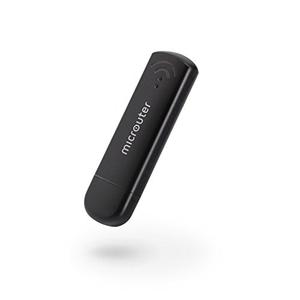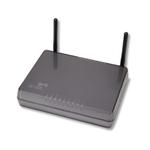GL-USB150
The GL.iNet GL-USB150 router has 300mbps WiFi, N/A ETH-ports and 0 USB-ports. It also supports custom firmwares like: OpenWrt, LEDE Project
Quick links:
Default password/Login
User Manuals
Flashing Custom Firmwares
GL-USB150 router specifications (specs)
CPU: 400 MHz
RAM: 64 MiB
Flash: 16 MiB
Custom firmwares: OpenWrt, LEDE Project
WiFi: 300mbps (bgn)
WiFi bands: 2.4GHz
WiFi throughput: n/a
WAN: None
ETH: None
USB-ports: 0
GL.iNet GL-USB150 review (quick overview)
Here is the quick comparison of how the GL.iNet GL-USB150 compares to other routers on our site:
For a full list of routers and how they compare to the GL-USB150, check the Router Buying Guide which will help you buy the most price-competitive router.
Hard reset instructions for GL.iNet GL-USB150
If your GL-USB150 router is not working as it should, dropping connections or not
being
responsive, you should first do a reset of the router to see if the problems persist. Other
scenarios where you might want to reset your router is if you've forgotten the password or
misconfigured it and can't get access anymore.
Your can reset your GL.iNet GL-USB150 in the following way(s):
The 30-30-30 reset
There are no specific instructions for this model yet, but you can always do the 30-30-30 reset as follows:- When router is powered on, press the reset button and hold for 30 seconds. (Use a paper clip or something sharp)
- While holding the reset button pressed, unplug the power of the router and hold the reset button for 30 seconds
- While still holding the reset button down, turn on the power to the unit again and hold for another 30 seconds.
This process usually works for resetting any router to it's factory setting.
If that doesn't work be sure to check out the
questions and answers
incase someone else has had similar problems resetting their router.
Note: It is worth reading more about
how to reset routers with the 30 30 30 reset and what the risks and
considerations
are when resetting your router this way, instead of just rebooting it.
Default factory settings for GL.iNet GL-USB150
If you have performed a reset of your GL-USB150 device or not changed the defaults, you should be able to access it with the following settings:
Default Gateway IP: 192.168.8.1 GL.iNet login instructions
Default subnet mask: 255.255.255.0
Default DNS server: 192.168.8.1
Note: If you are using the default settings you should change them to increase security and prevent unathorized access to your network.
GL-USB150 Firmwares
Staying up to date with the latest firmware is a good idea to keep your router even more
secure
from various security flaws.
If you want to squeeze a little bit of extra functionality out of your router, consider
flashing
an open-source firmware like dd-wrt, openWRT or LEDE. Flashing a custom ROM can greatly
increase
the stability and functionality of your old router.
Following are the firmwares that we have identified existing for the GL.iNet GL-USB150:
Flashing OpenWrt on the GL.iNet GL-USB150
The GL.iNet GL-USB150 is supported by OpenWrt according to their Table of
Hardware. So
flashing OpenWrt onto it should be quite straigthforward.
We couldn't find any specific instructions for flashin OpenWrt on the GL.iNet
GL-USB150, but since it's listed in their Table of Hardware as supported, you can
head
over to the
OpenWrt install instructions
and read on there.
Note: Flashing custom firmwares is always on you're on own risk. Make sure to
read OpenWrt's wikis to understand the risks and how to proceed if something goes
wrong.
Flashing LEDE Project on the GL-USB150
The GL.iNet GL-USB150 is also supported by the LEDE Project.
To install LEDE aquire the correct firmware from their
Firmware downloads
page and
then follow the instructions on their
Quick Start Guide
Note: Make sure to read the LEDE wikis carefully before flashing.
Report error on page
(If info is incorrect)



